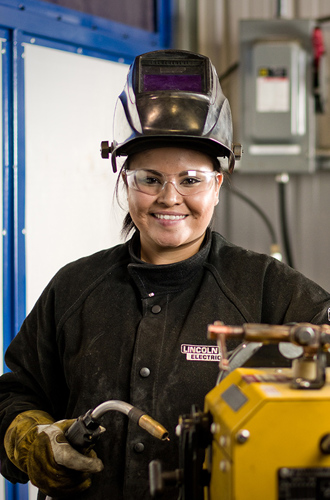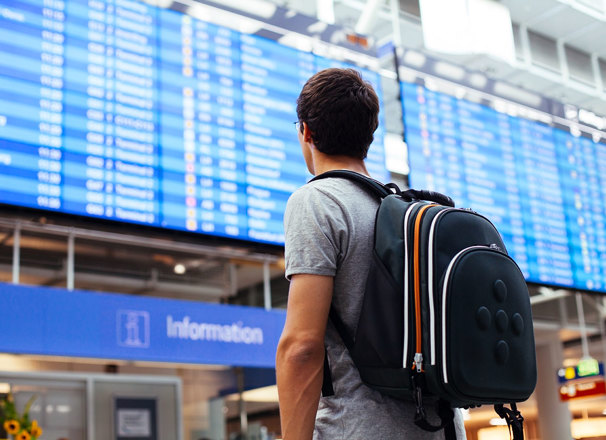Studying abroad can be fun and fulfilling. Going to a post-secondary school in another country is a great way to grow, learn, and see the world.
A stint in a foreign school can also help you:
- Better understand yourself and the world
- Achieve educational, personal and professional goals
- Gain social skills and independence
- Live in another culture
- Learn or build skills in another language
- Meet people, make friends, and increase your network
- Develop and enhance your skills
Opportunities to study abroad can include:
- Exchanges between schools in Canada and abroad
- Special courses or semesters abroad
- Degrees abroad
- Educational travel and the chance to complete part of your program abroad
- Research, internships, and work placements abroad
If you’re thinking about studying abroad, give yourself plenty of time to research your options and find what’s right for you.
Apply to study abroad through your Alberta school
Many post-secondary schools offer exchanges with foreign schools and the chance to spend between a few weeks and a semester abroad.
If you’re already enrolled in or will be attending a post-secondary school, you may be able to:
- Pay tuition to your Alberta school and take classes abroad without paying foreign tuition fees, which are often higher
- Stay eligible for scholarships, bursaries, grants, or loans you’re currently receiving
- Transfer credit for foreign courses directly to your Alberta-based program
- Receive credit from your Alberta school for studying in a foreign program.
If you want to use the credits you’ve gained abroad, make sure they will be recognized by your Alberta program:
- Ask a student advisor at your Alberta school about the process, your eligibility, and transfer requirements.
- Make sure you have the approval of your faculty or program to study abroad.
- Choose a foreign school that has exchange and credit transfer status with your Alberta school.
- Apply and register to study abroad through your Alberta school and pay the applicable fees.
- Plan to bring back a syllabus and detailed course outlines from your school abroad. These should include topics, textbooks, grading practices, the number of class weeks, and the numbers of lab, tutorial, and lecture hours per week. This information will help get your credit recognized if there’s ever a problem.
To check out what’s available at your school, ask your student advisor. You can also search your school’s website with these search terms:
- Study abroad
- Student exchange
- Educational travel
- International study
- International internship
Still in high school and wondering where to go? You can find a list of public post-secondary schools on the ApplyAlberta website.
Alberta programs for studying abroad
Alberta Advanced Education offers support for programs that provide foreign work and study experiences for students. These include summer school in Czech Republic, and Chinese government scholarships.
Check with the Study Abroad or International Office of your post-secondary school to learn more about these and other study abroad opportunities or visit Albertans studying abroad and international students.
Study abroad on your own
You don’t need to enrol in an Alberta school to study abroad:
- Contact the Canadian Information Centre for International Credentials to learn about studying abroad
- Find out if the foreign school you’re interested in will accept your existing school credits.
- Ensure that Alberta schools will accept the credits you earn abroad, in case you can’t complete your foreign studies and need to transfer your credits.
Returning to Alberta with foreign credentials
Always keep in mind that you are responsible for making sure your foreign credentials will be recognized in Alberta.
If you plan to study at a school that is not an exchange partner with an Alberta school, your credentials may not be recognized in Alberta. As a result, you may not be able to work in your occupation when you return.
If you’re studying to enter a regulated occupation in Alberta, check with the occupation’s professional regulatory organization before you enrol. You can also find regulatory organization contact information in an occupation's certification profile at OCCinfo. Ask if your credentials will meet the licensing requirements for foreign-trained professionals. For some occupations, such as in medicine and teaching, it can be very difficult to obtain a licence to work in Alberta if your credentials are from outside Canada, regardless of your citizenship. You may have to take additional courses and exams to qualify for a licence.
Before you enrol, look into the following:
- Will your foreign credentials (certificate, degree) be recognized in Alberta?
- Can you apply for a Canadian internship or residency position if it’s a requirement of your program? In many occupations, Albertans who study abroad may not be eligible for internships or residencies in Alberta.
If your area of study is for an unregulated occupation, talk to potential Alberta employers. See whether they would hire someone with the foreign credentials you’re planning to achieve.
Visit Certifications in Alberta at OCCinfo for more information.
Find out more about studying abroad
Need more details? Check out these websites:
- Go Abroad
- Go Overseas
- Study Abroad
- University of Calgary's Study Abroad
- University of Alberta’s Go Abroad



